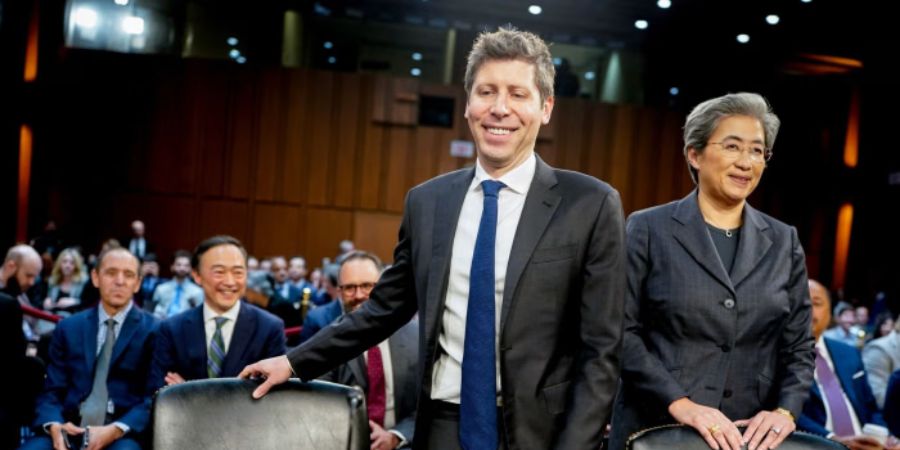Germany has long been famous for its engineering prowess, stable infrastructure, and robust economy. But now, the nation is looking to do something even bigger, an entire overhaul to become a global tech giant. To do so, Germany is set to open a super-high-tech ministry. It’s not just another ministry in the government. It’s a big step that indicates how seriously the nation is committed to innovation, digital advancement, and emerging technologies.
It’s not simply about an additional layer within the government. It’s more about having one space completely and totally committed to technology, to research, artificial intelligence, digital development, altogether in one. For the worldwide audience, and particularly here in the United States, it signals Germany’s intensifying commitment towards the future of technology on a global scale.
What’s Behind the Move?
The digital era is racing ahead, and nations that lag behind will be left behind. Germany has seen gaps in how technology is addressed in its government right now. Today, various departments handle different areas of tech, making it more difficult to streamline and pursue long-term objectives.
This ministry, which is ultra-high-tech, is designed to do that. The aim is to consolidate everything, from digital infrastructure and cybersecurity to research, development, and even education, so that the decisions come faster and are better coordinated. It’s an unmistakable signal that Germany is keen to get rid of red tape and come to the point when it comes to future technologies.
Why it Matters Globally
This may be familiar to the US audience. The United States also has its own system of overseeing tech through departments such as the Department of Energy (for research), Department of Commerce (for innovation and economic growth), and others. But Germany is doing something different by combining all that has to do with cutting-edge tech into one entity. That amount of concentration can make the country go faster and more smoothly.
Also, when a big economy such as Germany takes such a dramatic step, it has implications for the global tech environment. American companies that collaborate with German companies — or compete against them, will probably feel the effects. A more technologically advanced Germany might translate into more innovation, new benchmarks, and greater cooperation across borders.
High-Tech Goals in Mind
This new ministry is more than symbolic. It’s bound to concentrate on some key spheres. These will include artificial intelligence, robotics, quantum computing, digital medicine, climate-friendly technical solutions, and so on. Each of these areas can be life-changing — not only for Germany but across the globe.
Germany wishes to be at the forefront of such change. And the super-high-tech ministry will be at the center of shaping research, creating ethical guidelines, financing startups, and making certain that technology is utilized in a responsible and beneficial manner.
Lessons for Other Countries
Germany’s move to establish a dedicated tech ministry is one that can be emulated by other countries. In an era where technology influences everything, from education and employment to security and the climate, it makes sense to provide it with more attention at the policy level. By bringing bright minds together and cutting bureaucracy, it becomes possible to address real-world issues more quickly.
For American readers, this may evoke a question: What if one department controlled all cutting-edge technology development in the United States? Though America is already at the forefront of innovation, Germany’s new method may bring opportunities for new innovation and global collaboration.
Bringing Industry and Government Closer
One of the most important things about the super-high-tech ministry is how it will collaborate with tech firms, universities, and research laboratories. The concept is to create a robust connection between what is being developed in the lab and what is required in the real world. This is where policy can really aid progress, by investing in the right projects, eliminating old regulations, and supporting startups.
For US tech professionals, particularly those who deal with European clients or research groups, this would translate to more collaborative projects, more research grants, and more knowledge exchange between the two regions.
What the Future Looks Like
As this super-high-tech ministry comes together, the world will be looking on. Germany is placing a bet on the future, an ambitious one that might pay off in smarter cities, cleaner factories, safer computer systems, and improved healthcare. It’s a long-term investment in something that touches everyone, wherever they happen to live.
For Americans, this action can be both inspiring and motivating. It proves that even established nations are open to rethinking how things get done. And it reminds us that to stay ahead in technology doesn’t necessarily mean creating the next device, it means creating systems that enable innovation at every level.
Final Thoughts
Germany’s move to initiate a super-high-tech ministry reflects a clear understanding of where the world is headed. With technology increasingly becoming integral to daily living, it isn’t surprising that nations want to take it seriously at the leadership level. For the US readership, this move is something to watch for, not merely for its bearing on world tech, but for the ideas that it may initiate at home.
As countries forge their digital futures, actions such as these will determine who writes the next chapter of innovation. Germany appears to be ready. The world is waiting now to know what they will create next.








